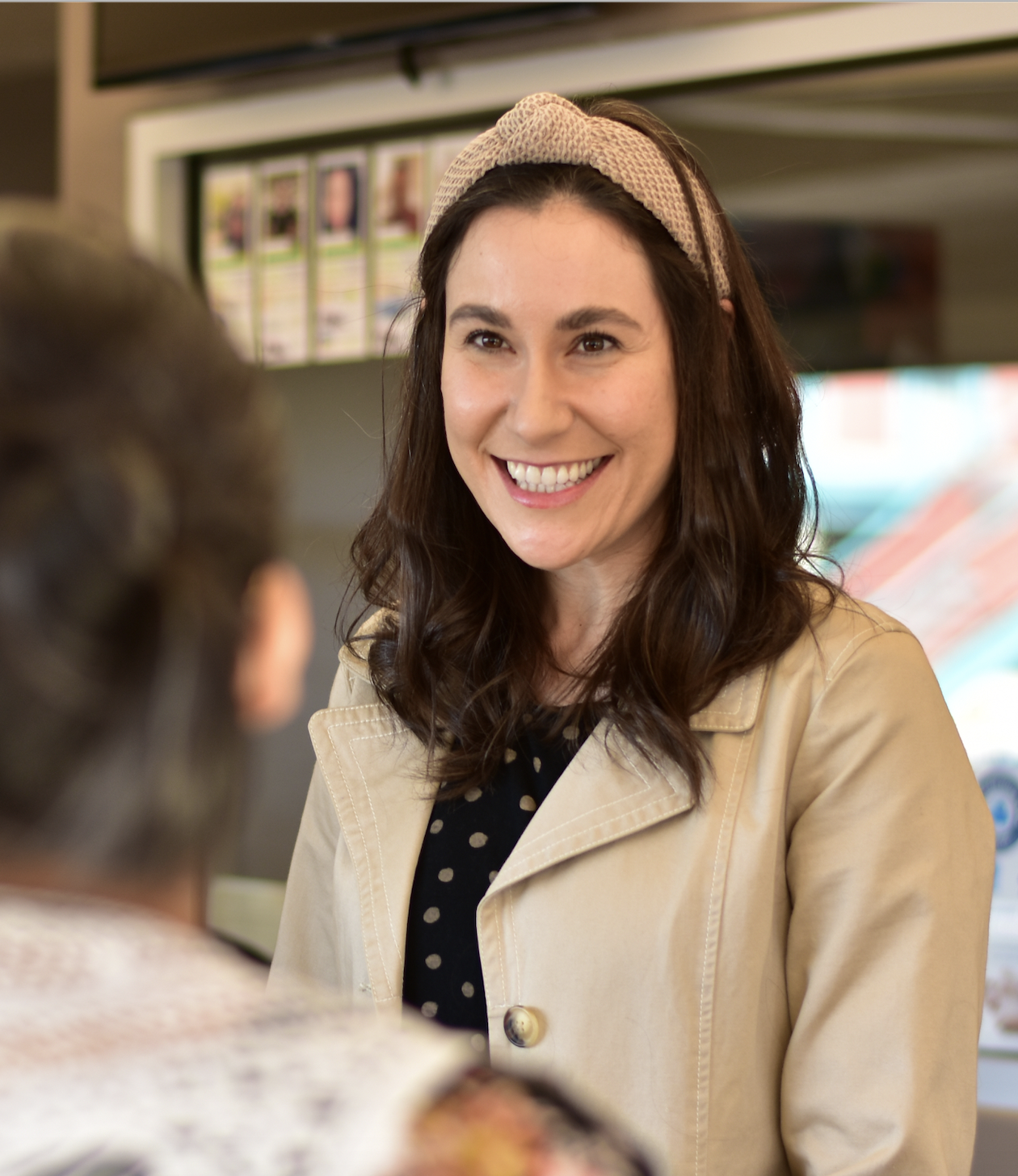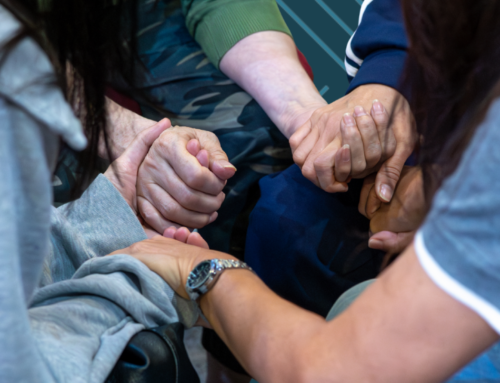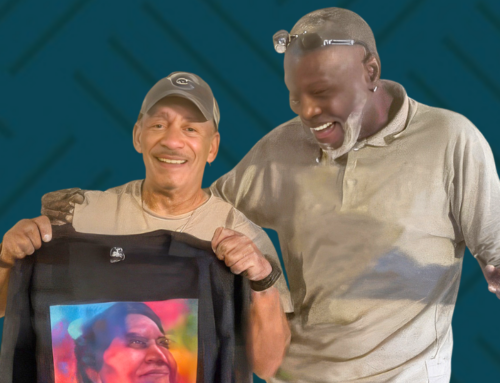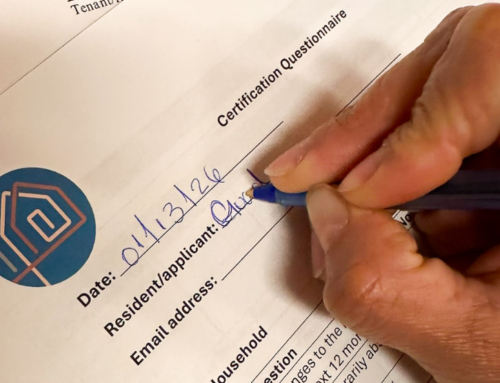“I love the Living Room of Joshua Station,” says Kate Sooy. “It’s our hub. The life blood of friendship and connection flows through here. People feel heard, seen, and safe. They express needs, sorrows, and victories with each other and with me. They linger and laugh!”
Kate’s referring to the Joshua Station front desk, where she lovingly facilitates the magic.
One winter morning when her world was raw and aching, Kate could barely get herself out of bed. A personal tragedy had overwhelmed her. She should get back to work, her head said. Her heart and body said, how? What face could she possibly wear at the front desk? What would she say, when people noticed?
“I was fragile,” Kate remembers. “Broken and vulnerable, I felt no capacity to care for others.”
Kate decided to make a go of it. Encouraged by other staff to take things a tiny bit at a time, she could at least be cordial with practicalities such as keys and mailboxes. And maybe, when the time seemed right, take another risky step?
The step, Kate knew, was opening her grief to residents. Not every resident and not all the grief, by any means. A little at a time, she could open her heart to a few women she felt close to. They were close, Kate realized, because they had first shared deep joys and sorrows with her at the front desk. Reciprocating their trust felt scary.
“I was blown away by their compassion and caring. I was struck by their ability to acknowledge hard things and not turn away. They did not demand that I turn away, either. They knew pain in their lives, and they held my pain with me.”
Among the first residents Kate shared with, one woman simply cried with her. Another listened patiently, and later returned with homemade cheesecake – Kate’s favorite. Another penned a note that Kate will never forget: “I know how much you’re hurting. I also know you’re resilient, and will heal.”
“To be honest, among all my circles of friends who cared, this was the group that held me best,” Kate observes. “Not everyone can hold pain without diverting attention. I didn’t need cliches or dismissive comments that it was all for the best.”
As weeks and months passed and Kate’s continued pain was out of mind for others, Joshua Station residents continued their tenderness. They would stop by the front desk, touch her arm, and ask “How are you really?” On weekends, her phone flashed text messages with the same gentle questions and consolations.
In the living room, Kate continues to heal – and our residents do too.








